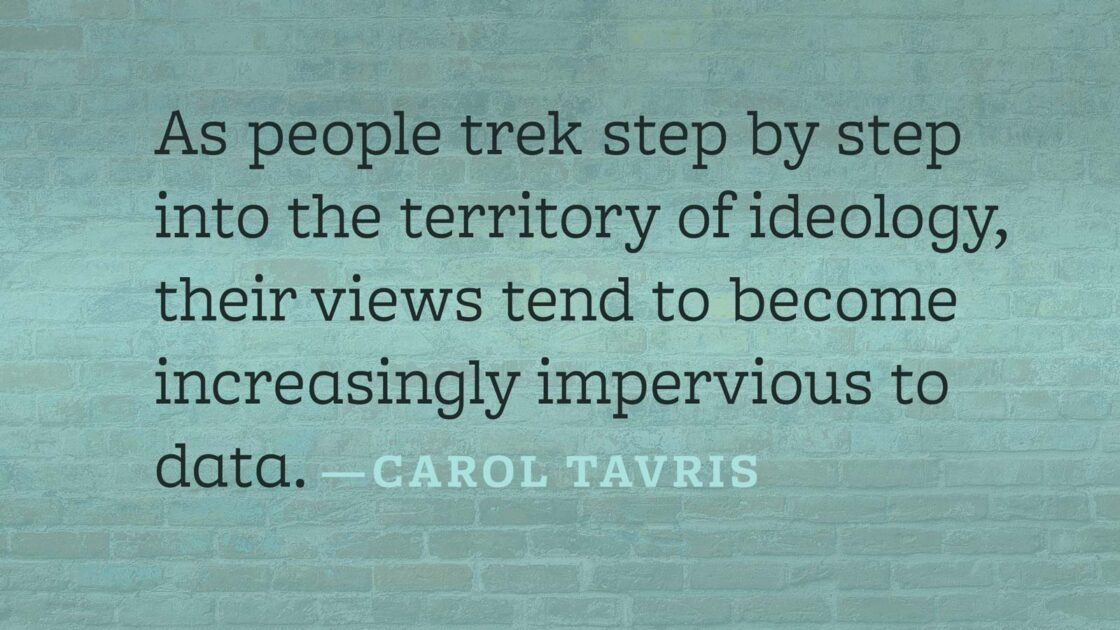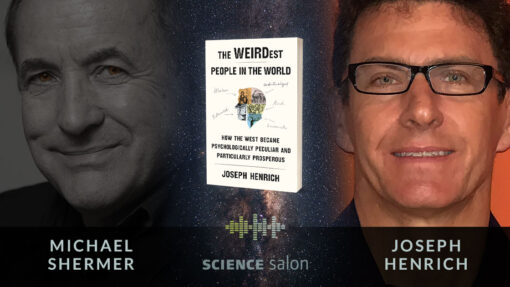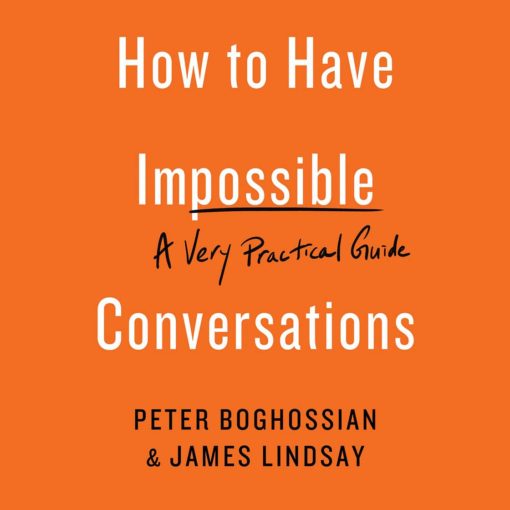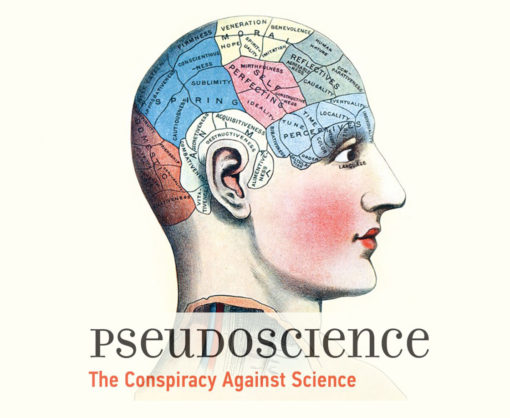
Laith Al-Shawaf shares his experience attending a New Age festival undercover and exploring the beliefs and practices of the attendees.


Laith Al-Shawaf shares his experience attending a New Age festival undercover and exploring the beliefs and practices of the attendees.

Instead of liberal-conservative bias in education we should think about biases and orthodoxies by topic. Each side values truth and cites facts, but only if they confirm what they already believe. Ideological and Political Bias in Psychology (edited by Frisby, Redding, O’Donohue, & Scott Lilienfeld) details the harm to psychological science, academia, and society from today’s very illiberal ‘woke’ ideology.

After her wrongful conviction for murder in 2007, Amanda Knox was haunted by one question: why? Why did this happen? How could the pursuit of justice have gone so far off course? Corruption and evil were not satisfactory answers for her. Instead, she found understanding through the study of motivated reasoning and cognitive bias, which led her see how well-intentioned people could have arrived at such false conclusions, and how she herself could become a better thinker.

Amanda Knox spent four years in an Italian prison for a crime she did not commit. In the fall of 2007, the 20-year-old college coed left Seattle to study abroad in Italy, but her life was shattered when her roommate was murdered in their apartment. After a controversial trial, Amanda was convicted and imprisoned.

In Science Salon 149, the last of 2020, Dr. Michael Shermer reflects on the many issues we have witnessed this year: Black Live Matter, class conflicts, income inequality, lack of education, anti-Semitism, far-left illiberalism, far-right xenophobia and bigotry, and religious indoctrination. He then reads an expanded version of his essay The After Time: The Future of Civilization After COVID-19.
In Science Salon 149, the last of 2020, Dr. Michael Shermer reflects on the many issues we have witnessed this year: Black Live Matter, class conflicts, income inequality, lack of education, anti-Semitism, far-left illiberalism, far-right xenophobia and bigotry, and religious indoctrination. He then reads an expanded version of his essay The After Time: The Future of Civilization After COVID-19.

WEIRD: Western, Educated, Industrialized, Rich, and Democratic. Unlike much of the world today, and most people who have ever lived, WEIRD people are highly individualistic, self-obsessed, control-oriented, nonconformist, and analytical. How did WEIRD populations become so psychologically distinct? What role did these psychological differences play in the industrial revolution and the global expansion of Europe during the last few centuries?
In Science Salon podcast # 134, Michael Shermer speaks Joseph Henrich about his book: The WEIRDest People in the World: How the West Became Psychologically Peculiar and Particularly Prosperous.
Dr. Michael Shermer considers the pitfalls of projecting the consequences of the pandemic for our future (the availability heuristic, the negativity bias, the difficulties of superforecasting, and the contingent nature of history). PLUS: In Science Salon # 131, Michael Shermer speaks with Stuart Ritchie his book Science Fictions: How Fraud, Bias, Negligence, and Hype Undermine the Search for Truth.

Is Electronic Screen Syndrome (ESS) real? Is it a disease? An addiction? Do violent video games cause aggression? Can playing video games have positive effects? In this column from Skeptic magazine 25.2 (2020), Harriet Hall, M.D. examines ESS and shares the science.
In SPAS-006, the researchers asked: “Do people with different political orientations have different bases—evidence or emotion—for their political opinions?” PLUS: Harriet Hall, M.D. examines Electronic Screen Syndrome (ESS) and shares the science.
What is a conspiracy, and how does it differ from a conspiracy theory? Michael Shermer explains who believes conspiracy theories and why they believe them in the following essay, derived from Lecture 1 of his 12-lecture Audible Original course titled “Conspiracies and Conspiracy Theories: What We Should Believe and Why.”
Dr. Anondah Saide and Dr. Kevin McCaffree examine whether political party identification is associated with tolerant attitudes towards individuals with different political views. ALSO, Michael Shermer explains who believes conspiracy theories and why they believe them in an essay derived from a lecture on conspiracies and conspiracy theories.

An excerpt from How to Have Impossible Conversations: A Very Practical Guide provides some tools to help people navigate contentious conversations.
In Science Salon # 105 Michael Shermer speaks with Diana Pasulka about her book: American Cosmic: UFOs, Religion, Technology. PLUS an excerpt from How to Have Impossible Conversations: A Very Practical Guide provides some tools to help people navigate contentious conversations.
In Science Salon # 89 Michael Shermer speaks with Richard Dawkins about his new book Outgrowing God. Dawkins explains how the natural world arose without a designer and challenges head-on some of the most basic assumptions made by the world’s religions. PLUS: Is the statement “We are living in a post-truth world” true? If your answer is “yes” then the answer is “no” because you’ve just evaluated the statement in an evidentiary manner, so evidence still matters and facts still…

Is the statement “We are living in a post-truth world” true? If your answer is “yes” then the answer is “no” because you’ve just evaluated the statement in an evidentiary manner, so evidence still matters and facts still matter. Harvard psychologist Steven Pinker explains why were are not living in a post-truth world in this deeply insightful cover story from Skeptic magazine 24.3 (2019).

Harriet Hall, M.D. (aka the SkepDoc) reviews Pseudoscience: The Conspiracy Against Science by Allison B. Kaufman and James C. Kaufman.
In this week’s eSkeptic, Michael Shermer reviews Will Storr’s book, The Unpersuadables: Adventures with the Enemies of Science. A shorter version of this review ran in the Wall Street Journal on April 1, 2014.
For some obsessed fans of Stanley Kubrick’s 1980 film, The Shining, there exists hidden meaning in the film. Are these fans suffering from confirmation bias, or did Stanley Kubrick intend to leave clues, like a riddle to be solved? In this week’s eSkeptic, Will Dowd conspiracy thinking in this review of Room 237, a documentary directed by Rodney Ascher, produced by Tim Kirk, and distributed by IFC Films (released January, 2012, 102 minutes).
Whether at home or on the go, the SKEPTIC App is the easiest way to read your favorite articles. Within the app, users can purchase the current issue and back issues. Download the app today and get a 30-day free trial subscription.







